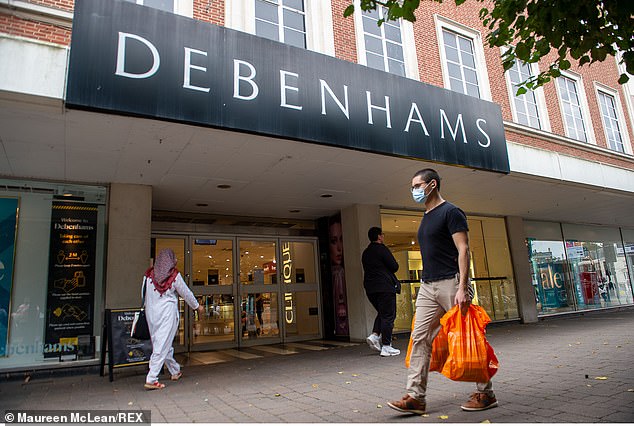Even by their own breathtaking standards of arrogance, it takes some weapons-grade chutzpah for private equity companies to come wheedling for a bailout in the form of loans backed by the British taxpayer.
They are, after all, supposed to be ultra-capitalists who make their millions by sheer talent and enterprise.
It takes even more cheek for firms that have no qualms about staging mass sackings to justify their scrounging on the grounds that tens of thousands of ordinary people’s jobs are at stake.
Indeed they are, and much of the fault lies with the rapacious tycoons who have taken over large tracts of the high street. The distress is palpable from Debenhams to Pizza Express.
How despicable to use ordinary staff as a human shield. If they really were so concerned about job losses, many would not run such an unstable and dangerous business model in the first place
Private equity is meant to be a brilliant way of transforming poorly-run businesses into lean, mean profit machines.
In reality, many of these guys – they are overwhelmingly male – make Sir Philip Green look like a choirboy.
The very prospect of giving any kind of bailout to some debt-sodden, greedy predators who have bled white our retail sector, is one that turns my stomach.
It also threatens to bring into disrepute the whole system of support for firms and families in genuine hardship and could even make the bank bailouts following the credit crunch of 2008 look palatable.
There are suggestions that the story may just be a ‘flier’, put about by the Treasury to whip up outrage and strangle the idea at birth.
But if the Government does even consider lending this crew cheap funds, with a taxpayer guarantee for 80 per cent of the borrowing if the money is not paid back, it is asking to be fleeced.
The rationale is that there is no alternative because, without the loans, thousands of jobs will be lost.
How despicable to use ordinary staff as a human shield. If they really were so concerned about job losses, many would not run such an unstable and dangerous business model in the first place, nor reward themselves with obscene bonuses.
They are largely short-termists, aiming to be in and out within three to five years while loading up the companies they buy with debt.
That maximises their profits in the good times but leave only the slenderest margin for error when times are bad, as they are now.
As a template for running a business, it is inherently fragile and risky – and all too often leaves a trail of devastation in its wake.
This is what happened to poor old Debenhams, which is still paying the price for an unhappy three-year period of private equity ownership that ended back in 2006.
The once-loved department store was left in a weakened state from which it never recovered, leaving it vulnerable when Covid-19 struck.
It is now owned by hedge funds who have called in advisers to draw up liquidation plans as a last resort.
Sometimes the medicine does work, as with financial technology company Worldpay, which was bought off RBS by private equity and became a world leader.
But too often it has gone horribly wrong, as happened with Comet, the once ubiquitous electrical goods chain which collapsed with the loss of 7,000 jobs just months after being taken over by private equity buyers in 2012.

If the Government does even consider lending this crew cheap funds, with a taxpayer guarantee for 80 per cent of the borrowing if the money is not paid back, it is asking to be fleeced
Swathes of our care home sector, which is riddled with financial difficulty, is or has been in private equity ownership.
Or look at the AA, which was in the hands of two major private equity firms before being floated on the stock market six years ago with debts of £3billion that still haunt it to this day.
Now there is speculation it could be taken back into private equity ownership once again, which is the last thing the company, its staff and its customers could possibly need.
Anyone extending a helping hand to private equity chancers like these should count their fingers.
The Chancellor is already stretching the national finances to give a safety net to those who really need one.
The idea that some morally bankrupt private equity companies – which have for so long made themselves rich at everyone else’s expense – should now benefit from that government largesse is abhorrent.
